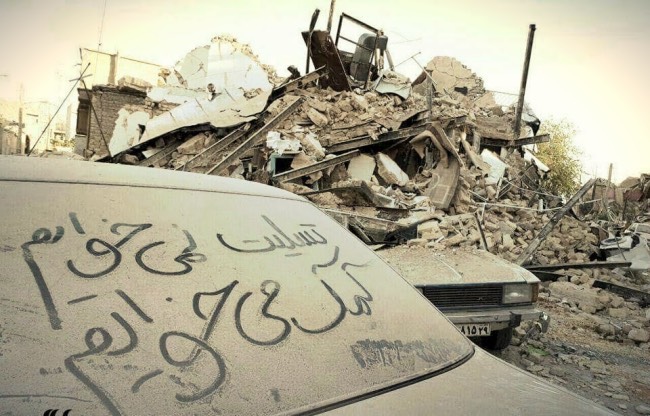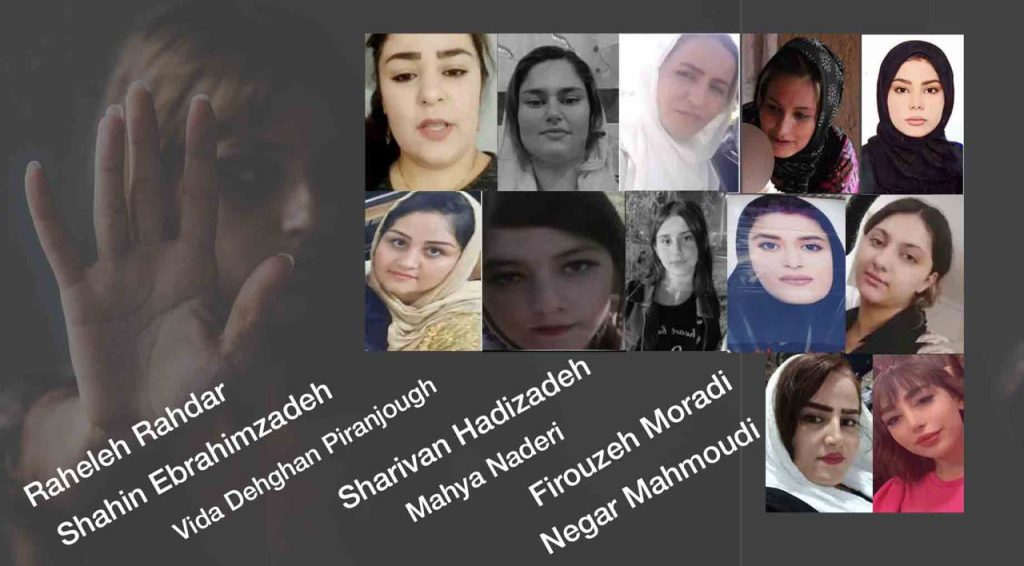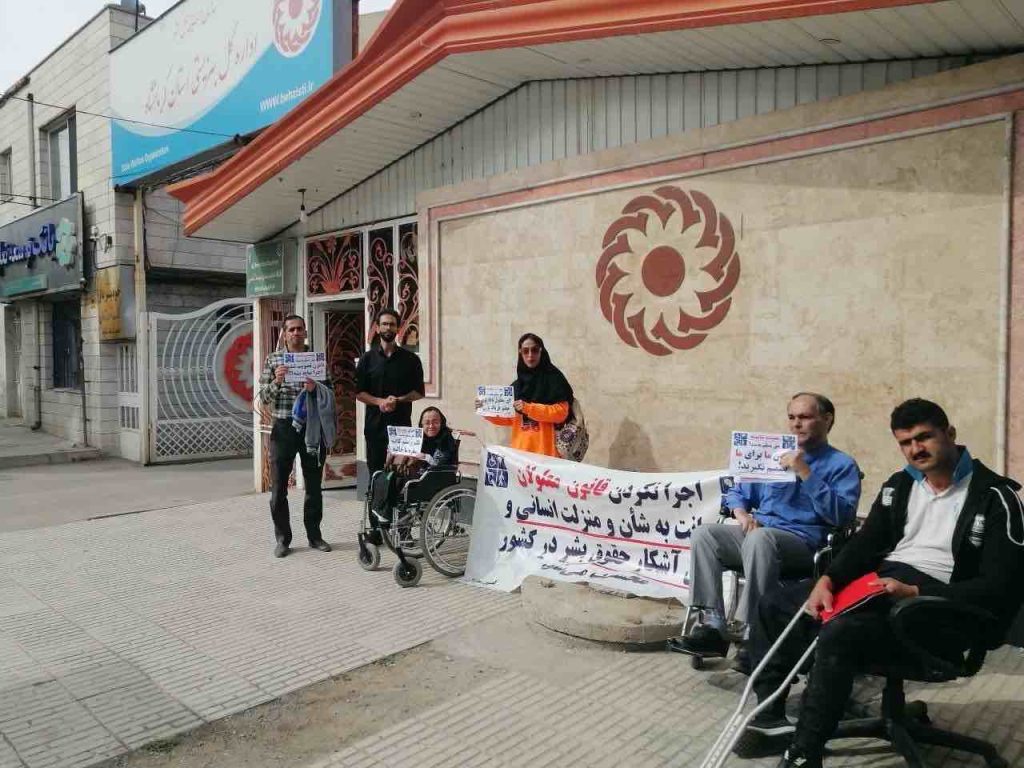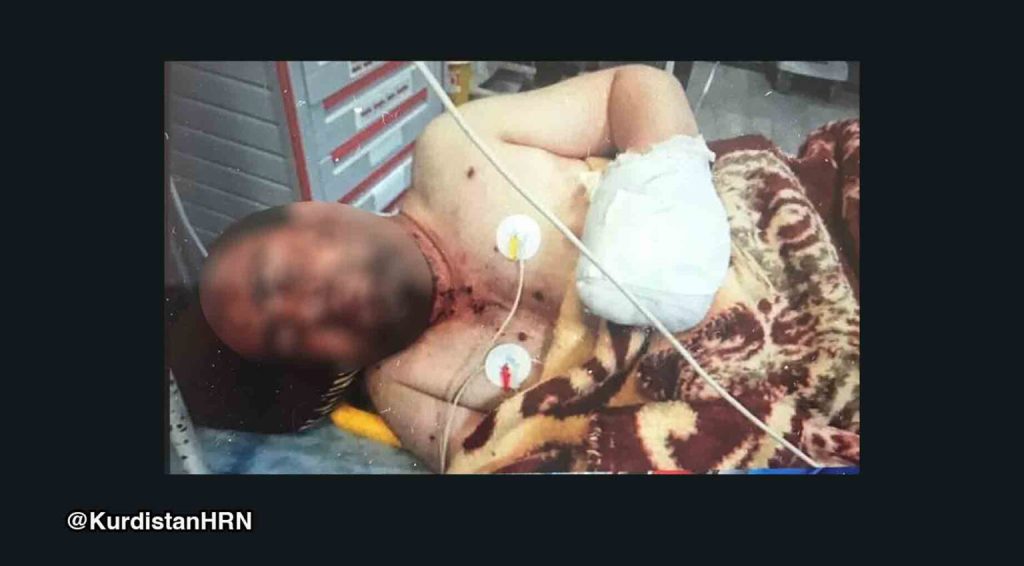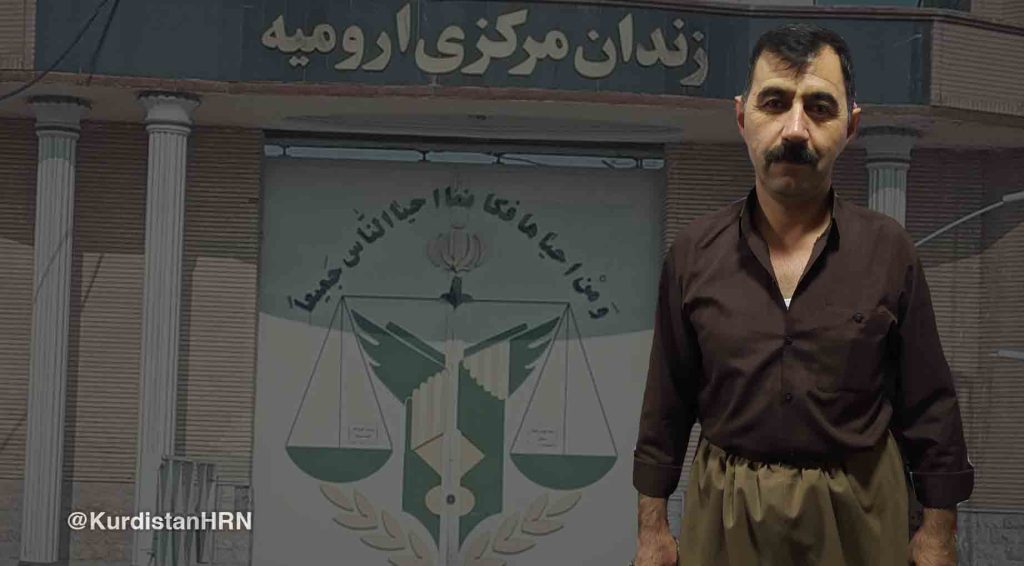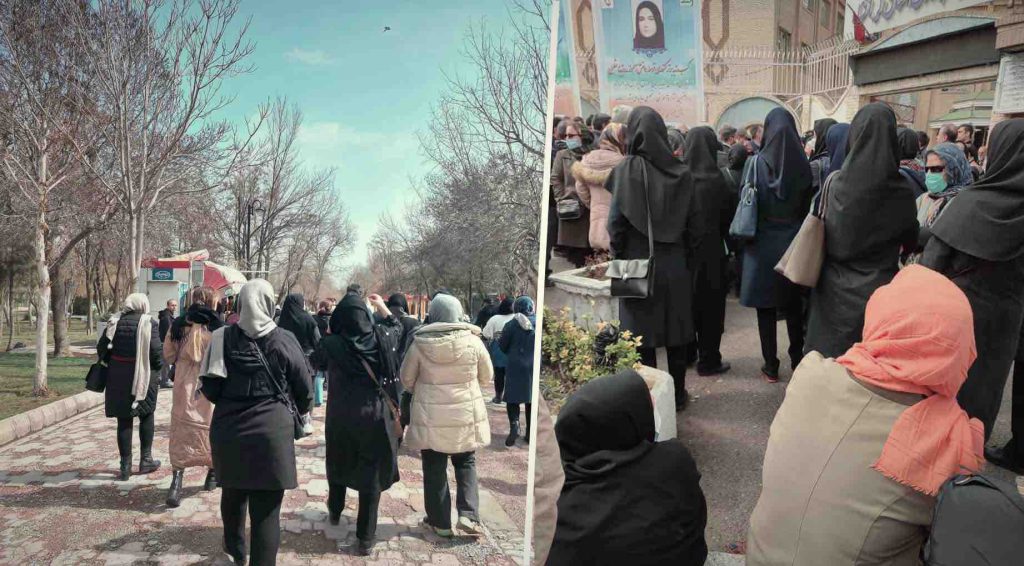Two days after the strong earthquake (measuring 7.2 magnitude on Richter scale) hit many Kurdish areas in western Iran, the residents of the earthquake-stricken areas in the Qasr-e-Shirin, Sar-Pol-e Zahab and Salas-Babajani cities have reported that government officials are neglecting the relief efforts to these areas.
Moreover, the office of Kermanshah Forensic Medicine has reported 460 deaths and 7460 injured people. But residents of the earthquake-stricken rural areas of Sar-Pol-e Z
ahab and Salas-Babajani have reported to Kurdistan Human Rights Network (KHRN) that due to the delay in arrival of relief forces, the local people have had to take out the survivors and corpse of their loved ones from the rubbles with their bare hands. In most cases, the bodies are buried without formal and authorised disclosure. Therefore, the statistics announced by the officials are less accurate.
Interviewing residents of several villages around Salas Babajani and Sar-Pol-e Zahab who have suffered physical and financial damage during the earthquake on Sunday night, KHRN has discovered that by midnight today (on Tuesday, November 14) relief troops have not been deployed to help people in these areas. The survivors are staying outside around their damaged homes in the freezing weather with no food water and tent.
“Seven residents of our village were killed and five were injured but so far, apart from a number of volunteers, nobody has come to our rescue in this area. The majority of the villagers have lost their homes and they are desperately in need of help,” one of the residents of Nivehkar village, from Salas Babajani, told Kurdistan Human Rights Network.
The mayor of Ezgeleh, a city in Kermanshah, said survivors desperately needed tents as elderly people and children as young as one-year-old have slept in the cold for the past two nights following the earthquake. He also added that Ezgeleh has been the focal point of the earthquake although there has been no media coverage of the damages caused by the earthquake in this small city.
“21 people have lost their life but nobody has come to our rescue. People are in desperate need of food and drink. We have taken the corpse of our loved ones out of the rubbles and buried them. Not even one of the governmental Emergency Operation Forces have come here to help us. During this earthquake, many houses have also been severely damaged.”, one of the residents of Sarepole-Zahab said.
One of the civil activists, who has gone to the villages around Ezgeleh along with volunteer teams, stated that “many of the villages in these areas have been completely destroyed, and people have made fire in the streets to keep the cold out at night due to lack of heating equipment. The few tents sent to the villages have been distributed among the families of officials. Moreover, few donations sent to these areas are not distributed fairly among the people. “
According to the above-mentioned civil activist, the situation in other villages including the villages of Kuik, Dasht Zahab, Sarab Javari, Ghale Bahadori, Bamiramabad and … is also a disgrace, and the residents of these villages face a severe shortage of water, food, medicine, tents …. »
“About 80% of the houses in the village have been destroyed. The Medicines of patients and chemical victims are under the rubbles, so their health condition is very critical. Since Saturday night, only 50 tents have been sent to this village with 500 families who are hungry and thirsty in these harsh conditions in the Dalahu Mountains. Officials do not respond to our cries for help. “, a resident of the Zardeh village, where there is a high number of chemical victims of the eight-year war between Iran and Iraq, told Kurdistan Human Rights Network.
Several residents of Sarpol e Zahab have also described the city’s situation critical and reported that most of the victims in the recent earthquake had been living in Mehr housing estates. Mehr housing estates in the city of Sar-Pol-e Zahab have been particularly damaged due to non-observance of construction standards.
People are also complaining that the relief process in these areas is very slow. On Monday, there was a great hope for rescuing people who were still under the rubble but the state aid forces deployed to this city lacked equipment for doing so. The people and the aid workers and the soldiers of the army have been working hard to help the survivors while they did not have the necessary equipment.

